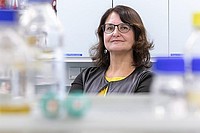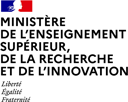Gabriele Berg, TU Graz, Austria, ATB & University of Potsdam, Germany

Gabriele Berg studied biology, ecology and biotechnology at the universities in Rostock and Greifswald obtained her Ph.D. in 1995 in microbiology from Rostock University (Germany). In 2005 she became a full professor in environmental biotechnology at Graz University of Technology (Austria), and in 2021 an additional professorship in Potsdam (Germany). Her interests are focused on microbiome research and translation of the results into new biotechnological and microbiome management concepts for health issues. From 2018 - 2020, she belongs to the most influential researchers world-wide (top 1, Clarivate Analytics).
The plant microbiota is crucial for health and functioning of the holobiont during the whole life cycle. These recent insights offer a tremendous potential for integrating microbiome research for horticulture. Plant-associated microbial diversity originates from seeds and soil. Both, the vertical and horizontal transmission route is essential for a healthy plant microbiome and local adaptations to the environment. Microbes play an important role in plants and interact closely with their host starting from sprouting seeds, continuing during growth and after harvest. The discovery of their importance for plant and postharvest health initiated a biotechnological development of various antagonistic bacteria and fungi for disease control. Microbiome technologies help to improve these products. Microbiome biotechnology is a sustainable and promising way to restore and improve soil and plant microbial diversity. In addition, microbiome tracking can be implemented as a new tool to evaluate and assess all processes and contribute to fruit and vegetable health along supply chains.







